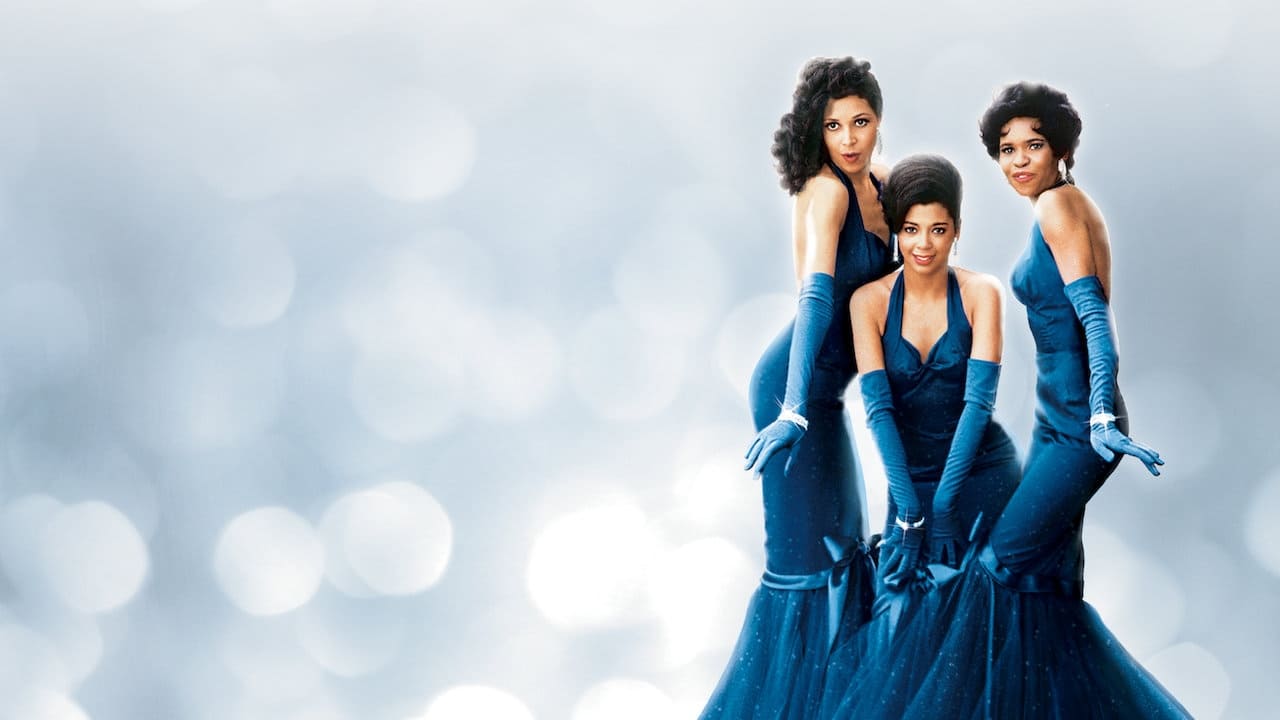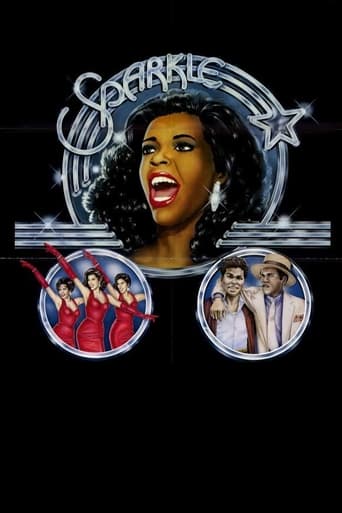mcj31482
First of all, I think the below comment is unworthy for a site like this. Obviously you have no taste and you don't respect the taste of others. Not to give you a history lesson but I think it needs to be done. Black actors out there are just, if not more, successful as others. If you are not a part of the "Black" race you cannot understand the quality, creativeness, and vibrant of old movies such as "Sparkle" and "Mahogany" and "Cooley High." Since unfortunately you are not Black, you do not have the pleasure of feeling what we feel when we watch these classics, so therefore you need to keep your freaking mouth shut and just stick to your non-dancing race. Thanks.
Woodyanders
A remarkable example of cinematic alchemy at work, with a trite'n'turgid lump of lead script (penned by numbingly mediocre Hollywood hack nonpareil Jole Schumacher, no less) being magically converted into a choice chunk of exquisitely gleaming 24-carat musical drama gold thanks to brisk direction, fresh, engaging performances, spot-on production values, a flavorsome recreation of 50's era New York, an infectiously effervescent roll-with-the-punches tone, and a truly wondrous rhythm and blues score by the great Curtis Mayfield.The story, loosely based on the real life exploits of the Supremes, prosaically documents the arduous rags-to-riches climb of three bright-eyed, impoverished black teenage girl singers who desperately yearn to escape their ratty, unrewarding ghetto plight and make it big in the razzle-dazzle world of commercial R&B music. All the obvious pratfalls of instant wealth and success -- egos run destructively amok, drugs, corruption, fighting to retain your integrity, and so on -- are predictably paraded forth, but luckily the uniformly excellent work evident in the film's other departments almost completely cancels out Schumacher's flat, uninspired plotting. The first-rate acting helps out a lot. Irene Cara, Lonette McKee, and Dwan Smith are sensationally sexy, vibrant and appealing leads -- and great singers to boot. Comparably fine performances are also turned in by a charmingly boyish pre-"Miami Vice" Philip Michael Thomas as the group's patient, gentlemanly manager, Dorian Harewood as McKee's venal, aggressively amorous hound dog boyfriend, and perennial blaxploitation baddie Tony ("Hell Up in Harlem," "Bucktown") King as a dangerously seductive, smooth operating, stone cold nasty gangster. The tone dips and dovetails from funny and poignant to melancholy and blithesome without ever skipping a beat, deftly evolving into a glowing, uplifting ode to the human spirit's extraordinary ability to effectively surmount extremely difficult and intimidating odds.Veteran editor Sam O'Stern acquits himself superbly in his directorial debut. Bruce Surtees' luminescent cinematography and Gordon Scott's expert editing are both flawless. O'Stern's firm grasp of period atmosphere, keen eye for tiny, but telling little details, and unerring sense of busy, unbroken pace are just as impressive. No fooling about Curtis Mayfield's impeccable soundtrack contributions, either. "Jump," "What Can I Do With This Feeling," "Givin' Up," "Take My Hand Precious Lord," "Lovin' You Baby," and "Look Into Your Heart" are all terrifically tuneful, soulful, almost unbelievably fantastic songs, with the sweetly sultry love jones number "Something He Can Feel," which was later covered by both Aretha Franklin and En Vogue, clearly copping top musical honors as the best-ever song in the entire movie. The net result of all these above cited outstanding attributes persuasively illustrates that sometimes it's not the screenplay so much as what's done with said script which in turn determines a film's overall sterling quality.
David Lipkins
An excellent movie. Superb acting by Mary Alice, Phillip M. Thomas, and a young Irene Cara. Tony King was very realistic in his role of Satin. This movie was one of the last predominately "all black" movies of the 70's and unlike the "blaxploitation" movies of that era, this movie actually had a plot, and was very well done. The movie soundtrack, sung by Aretha Franklin, was popular on the R&B charts at the time.

